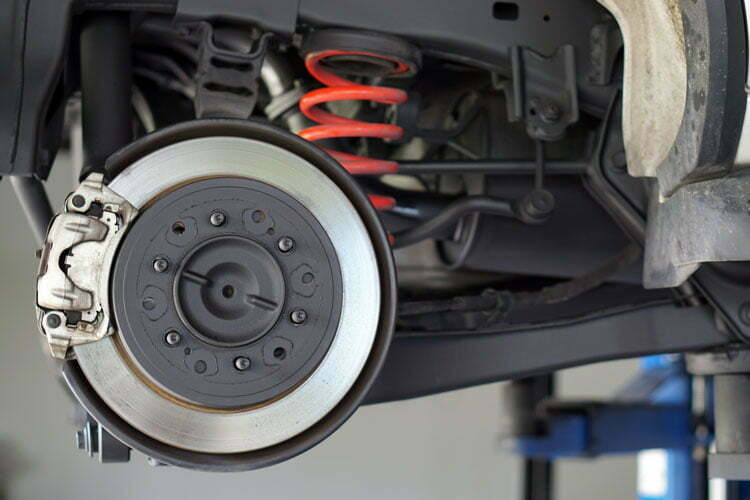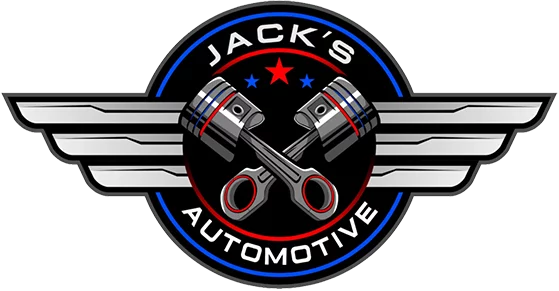How Often Should Brakes Be Serviced?

Brakes need to be replaced when they are worn out, but there are various other tasks associated with a maintenance schedule for your car brakes. For instance, it’s important to check brake pads wear periodically and to clean your brake system components to ensure reliable brake performance. Brake pads wear out and require replacement. Regular inspections of brake pads and other brake system components support the safe operation of your vehicle. Here, we’ll discuss how often to have your brakes serviced.
Your Driving Habits and Your Brake System
Most car manuals provide a thorough section about brake service with advice about how often brakes need inspecting. The manual should provide information about your front brakes, rear brakes, brake pads, brake fluid, brake drums, shoe replacement, and other elements of your braking mechanism. It may discuss brake service specifically or in a general sense.
Auto manufacturers also know that brake pad replacement and rotor replacement can depend substantially on the car driver’s driving habits, which is why brake service is so important to obtain as directed. If you’re hard on your brakes, you may need to replace your brake pads more frequently than someone who pumps them gently to stop the car rather than slamming on them routinely. Here are a few driving factors that can impact brake wear and tear:
Driving Frequency
The more frequently you drive, the more frequently you likely use your brakes. Most mechanics recommend that drivers inspect their brakes every four to six months. Your brake service provider can usually perform a thorough brake check with ease, checking components like each brake rotor, brake fluid, and the brake drum.
Highway vs City
If you drive mainly on the highway or on long rural stretches of road, you probably don’t use your brakes as frequently as a city driver. Cities tend to be busy with traffic and streets are crowded with intersections, stoplights, and stop signs. Drivers have to use their brakes more often when driving in the city.
Mileage
Mechanics suggest having your brakes inspected every 7,000 miles. This is an alternative to checking them every six months. You should check them whichever comes first–the frequency or the mileage milestones.
How Do You Know When It Is Time to Have Your Brakes Checked?
Your brake system may not be as complex as your car engine, but it does feature various parts that combine to create the brake mechanism. Brake components can wear out and reduce the functionality of your brakes. That’s why routine brake service is so important. Here are a few reasons to check your brakes before their regularly scheduled service time:
Brake Pads Make a Grinding Noise
If you hear grinding noise when you press down on your brake pedal, you may need new brake pads. If you have drum brakes or disc brakes, your brake shoe is probably scraping metal, which causes that grinding noise. It’s important to have brakes serviced right away to avoid more expensive repairs.
Brake Pedal Seems Mushy
If your brakes feel soft or spongy when you depress the brake pedal or, as some drivers have reported, feel ‘mushy,’ you should have your brakes serviced immediately. Mushy brakes could be a sign of imminent brake failure. When the resistance in the brakes changes, it’s typically a sign of a leak. Have all brake parts inspected and repaired by a certified mechanic before you get back on the road.
Squeaky Sounds
If you hear a squeaking noise or squealing noise when using your brakes, there may be debris caught in your brakes. On the other hand, this may also be an indication that you need to have your brake pads replaced and your brakes cleaned and inspected.
More Auto Brakes FAQs
Is brake servicing necessary?
In order to drive safely, it’s absolutely crucial to take your vehicle in for brake service periodically. Brake pads need changing periodically. Your brake service provider will check the components of your brake system such as the brake rotors, brake fluid, parking brake, brake shoes, wheel cylinder, rotating drum, and all other aspects of your braking system to ensure that you have functional brakes.
What happens if you don’t service your brakes?
Brake servicing is part of routine car maintenance just like oil changes. Brake wear is inevitable. If you don’t have brake servicing performed, any number of problems could arise that could lead to a failure of your brakes. Pads and rotors may fail. Brake fluid could be leaking. Brake caliper replacement may be needed. A brake check at a certified mechanic’s shop or the dealership from time to time is the only way to ensure that your vehicle is safe to operate and that your brakes work as they should.
